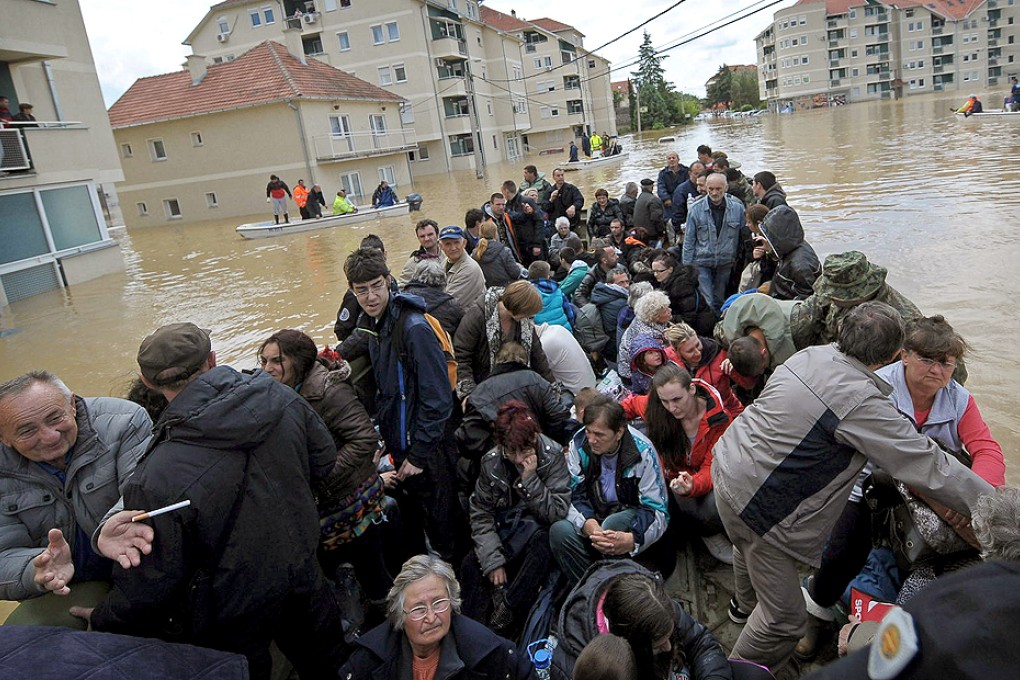Flooding in Bosnia causes new landmine danger in Balkans
Worst deluge in a century causes fears that landslides might carry unexploded ordnance downstream, as far as Bulgaria and Romania

The worst floods in over a century have swept away people, homes and roads in the Balkans. And now the deluge is giving way to another deadly menace: the threat of landmines.
Floods washed away river banks and caused landslides that have unearthed minefield warning signs and, in many cases, the unexploded booby traps themselves. As the weapons are carried downstream, countries as far away as Bulgaria and Romania may be at risk, experts warn.
Watch: Dozens dead in massive flooding in Bosnia, Serbia
Bosnia's tributaries feed the Sava River, which runs along the Croatia border and meets the Danube in Serbia. The Danube then flows through Bulgaria and Romania into the Black Sea.
